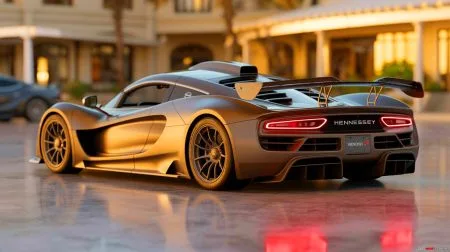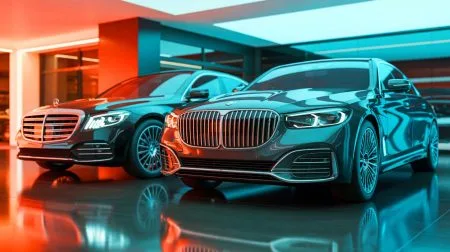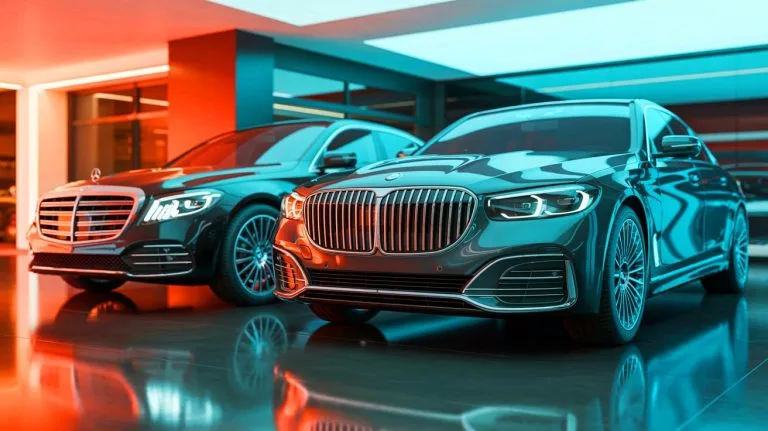| IN A NUTSHELL |
|
In a surprising development within the automotive industry, Mercedes-Benz, a brand long synonymous with luxury and innovation, is reportedly in advanced discussions with its historic rival, BMW. The core of these discussions revolves around Mercedes adopting BMW’s four-cylinder petrol engines for its future models. The potential partnership signals a significant shift in strategy for Mercedes, as the company navigates through the complexities of a rapidly changing market landscape. The decision comes amid challenges in transitioning fully to electric vehicles (EVs), prompting Mercedes to reevaluate its approach to internal combustion engines (ICE) in the coming decade.
Mercedes-Benz’s Strategic Pivot
For years, Mercedes-Benz has been vocal about its ambition to transition away from internal combustion engines, targeting a full shift to electric vehicles by the end of this decade. However, the adoption of EVs, particularly in the premium segment, has been slower than anticipated. This sluggish uptake has driven Mercedes to reconsider its all-electric strategy, leading to a renewed focus on ICE vehicles for the foreseeable future. The decision to potentially partner with BMW for engine supplies highlights Mercedes’ pragmatic approach to adapting its business model to current market realities.
The collaboration underlines the challenges faced by traditional automakers as they attempt to balance innovation with practicality. Mercedes’ need to secure a steady supply of efficient petrol engines for high-volume models such as the CLA-Class underscores the ongoing demand for conventional powertrains. This strategic pivot allows Mercedes to maintain its competitive edge while continuing to invest in the development of its electric vehicle lineup.
The BMW Engine Advantage
At the heart of the potential collaboration is BMW’s B48 turbocharged 2.0-liter inline-four engine. This particular engine has garnered attention for its performance and efficiency, making it an attractive option for Mercedes. The B48 engine’s integration into models ranging from the CLA to the GLC and future “Little G” demonstrates its versatility and suitability for a wide range of vehicles.
BMW’s reputation for engineering excellence, coupled with its existing partnerships with other automakers, positions it as a reliable supplier. The potential deal with Mercedes marks another chapter in BMW’s history of providing engines to diverse carmakers, including JLR, Range Rover, Ineos, and Toyota. For Mercedes, the partnership presents an opportunity to reduce research and development costs associated with developing new four-cylinder engines, allowing the company to focus resources on refining its six- and eight-cylinder offerings.
Implications for the Automotive Industry
The possibility of Mercedes and BMW collaborating on engine production holds significant implications for the automotive industry. Such a partnership could set a precedent for future alliances between rival companies, particularly as they face shared challenges such as emissions regulations and technological advancements. By pooling resources, both companies stand to benefit from cost efficiencies and expanded market reach.
For Mercedes, the collaboration could mean a more agile response to market demands, enhancing its ability to deliver a diverse range of vehicles that cater to varying consumer preferences. For BMW, increased engine production could optimize manufacturing processes and boost revenue by maximizing the capacity of its Steyr plant in Austria. Ultimately, the success of this partnership could encourage other automakers to explore similar collaborative ventures, reshaping the competitive landscape of the industry.
Supercar maintenance: Tips for keeping your ride in top shape
Future Prospects and Challenges
If the collaboration proceeds, the companies may also consider expanding joint production efforts beyond Europe. With the automotive industry grappling with numerous tariffs, particularly in the United States, there is a growing incentive to establish production facilities closer to key markets. This strategic move could mitigate the impact of trade barriers and increase the resilience of supply chains in a volatile global environment.
As the automotive sector continues to evolve, both Mercedes and BMW must navigate potential challenges associated with their collaboration. Issues such as brand identity, product differentiation, and consumer perception will require careful management to ensure that the partnership enhances rather than dilutes the distinct qualities that define each brand. The evolving dynamics of the partnership will be closely watched by industry stakeholders and consumers alike.
As Mercedes-Benz and BMW explore this potential collaboration, the automotive world awaits official confirmation and further details. The success of this partnership could influence future strategic alliances within the industry. As automakers balance innovation with practicality, the question remains: how will these collaborations shape the future of transportation and redefine the boundaries between competitors?
Did you like it? 4.6/5 (20)








Wow, Mercedes and BMW working together? Never thought I’d see the day! 🤯
Wow, Mercedes using BMW engines? That’s like Coca-Cola asking Pepsi for help! 😂
Is this the end of Mercedes’ electric dreams? What happened to their EV strategy?
Is this a sign that electric vehicles aren’t as sustainable as we thought?
Interesting move by Mercedes. I guess if you can’t beat ’em, join ’em! 🤔
How will this affect the resale value of current Mercedes models?
Why did Mercedes struggle so much with their EVs? Was it really that bad?